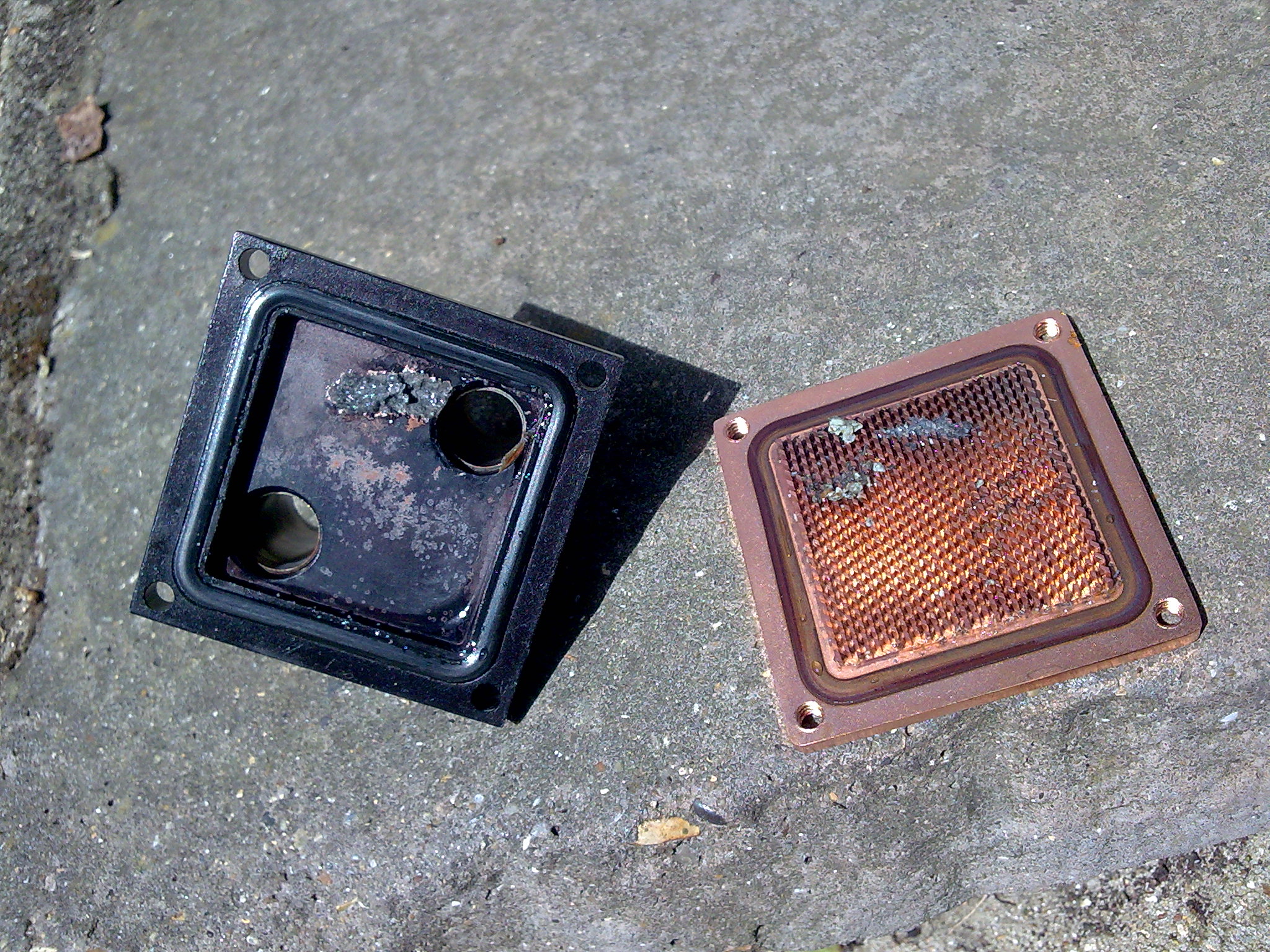just passing through reading.
Is there anything definitive about BLOCKING Galvanic corrosion?
I think I'm copper/brass throughout my loops (I cant categorically say I don't have bickel or steel as well, but I tried to avoid them IIRC) and I've not noticed ANY corrosion in my loop.
Truthfully I've not looked that hard, but on the GPU blokc which is fitted with a clear perspex cover looks fine and the loop appears to be running fine, and it's been up and running now since... (runs out of fingers on one hand) about 2019!
What's the latest guidance? Distilled water + PT Nuke & killcoils seems to be a thing of the past. What do you recommend that I replace them with when I finally give my loop a cleanout?
I was thinking distilled + Mayhems XT-1 Nuke....



